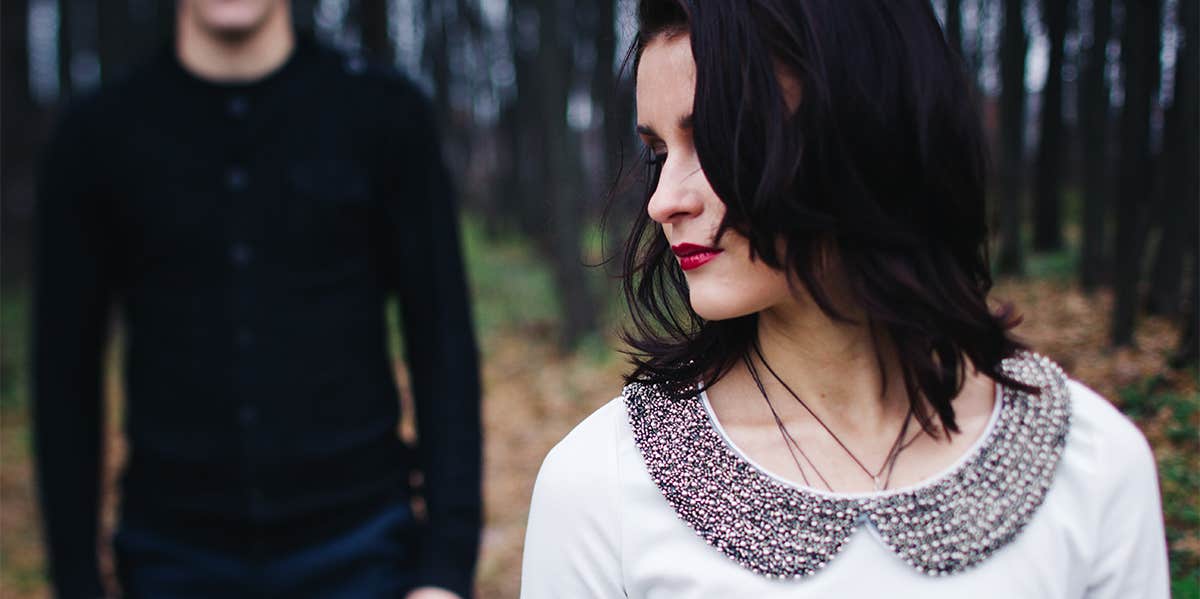4 Harsh Reasons You Keep Having Emotionally Abusive Relationships
Stop choosing the wrong relationships over and over.
 Skeronov / Shutterstock
Skeronov / Shutterstock Do you find that you date the wrong people over and over? One of my clients, Laura, certainly does.
She recently asked me: "I grew up in an abusive and dysfunctional family; how can I stop my pattern of choosing destructive and abusive relationships? Is it better to just remain single and grow with God and be a good mom and not gravitate toward craziness?"
There are a number of issues here that need to be addressed that can explain why you date the wrong people and find yourself in emotionally abusive relationships.
Here are four harsh reasons you keep having emotionally abusive relationships:
1. Your parents were emotionally abusive
Those who have emotionally abusive relationships with their parents tend to pick partners similar to their parents and then try to win their love. The wounded part of you may believe that if you can get this abusive, unloving person to love you, then you will also be winning the love from your parents that you never received. More than wanting a loving relationship, your wounded self wants control over getting love.
The problem is that this will never work. We cannot have control over making an unloving person become loving. Growing up in your abusive family, it was hard to face that reality. To survive, you had to convince yourself that there was something you could do that would make your parents love you. The truth is, there is no action you can take to win someone's love, and it will only hurt you to keep trying.
2. You let others treat you the way you treat yourself
Given that you come from an abusive family, it's likely that you have learned to treat yourself the way your parents treated you and the way they treated themselves. Until you learn to love yourself rather than abandon yourself, you will continue to attract emotionally abusive relationships.
3. You don't share your feelings
Most of us want to share love and we are lonely when we don't have anyone to share it with. In addition, many of our deepest issues come forward in relationships.
The challenge is finding a partner who is open to learning about themselves and about you so that the two of you can journey together through your healing process. The more you are open to learning with your feelings, the more you will be able to attract an open person with whom you can learn and grow.
The real challenge is to become the kind of person with whom you would want to share love. This, more than anything, will break the cycle of why you date the wrong people and attract a bad partner. You will see that the more you learn to be loving to yourself, rather than abandon yourself, the more you will attract loving people into your life.
4. You think you can do this alone
When you grow up with no role models of loving yourself, you date the wrong people and might need some help in learning how to do this. Reaching out for help in learning how to connect with your personal source of spiritual guidance and what it looks like to love yourself is an important part of taking loving care of yourself.
We all need support in shifting out of self-abandonment and into seeing and defining our beautiful essence. When you are able to define your intrinsic worth as love and are able to see that your ego-wounded self is not who you are, you will have a much easier time taking care of yourself.
We take care of that which we value, so the more you see and value your beautiful essence, the more you will naturally take loving care of yourself, and this will be reflected in your relationships.
Dr. Margaret Paul is a relationship expert, noted public speaker, and educator.

